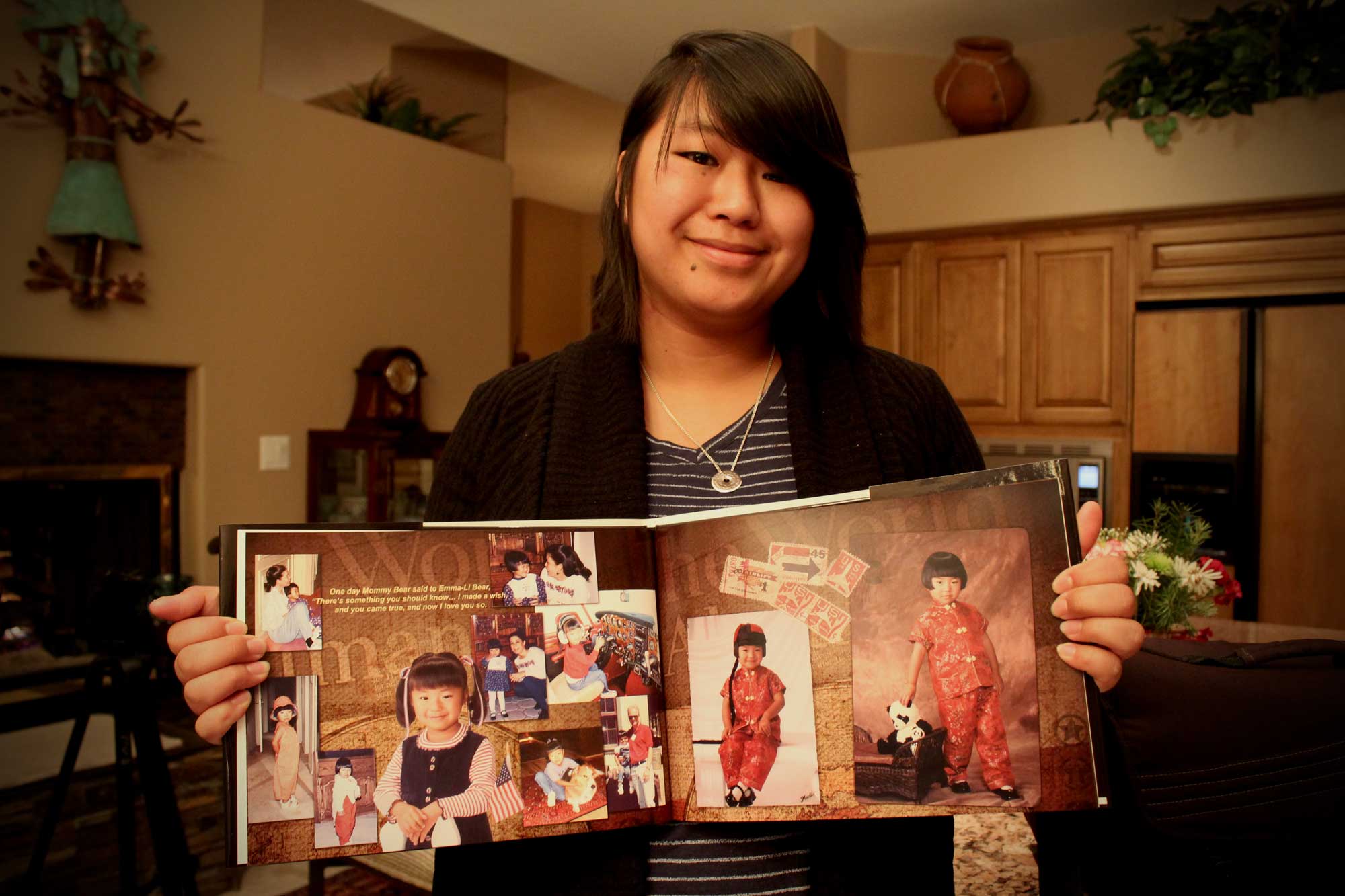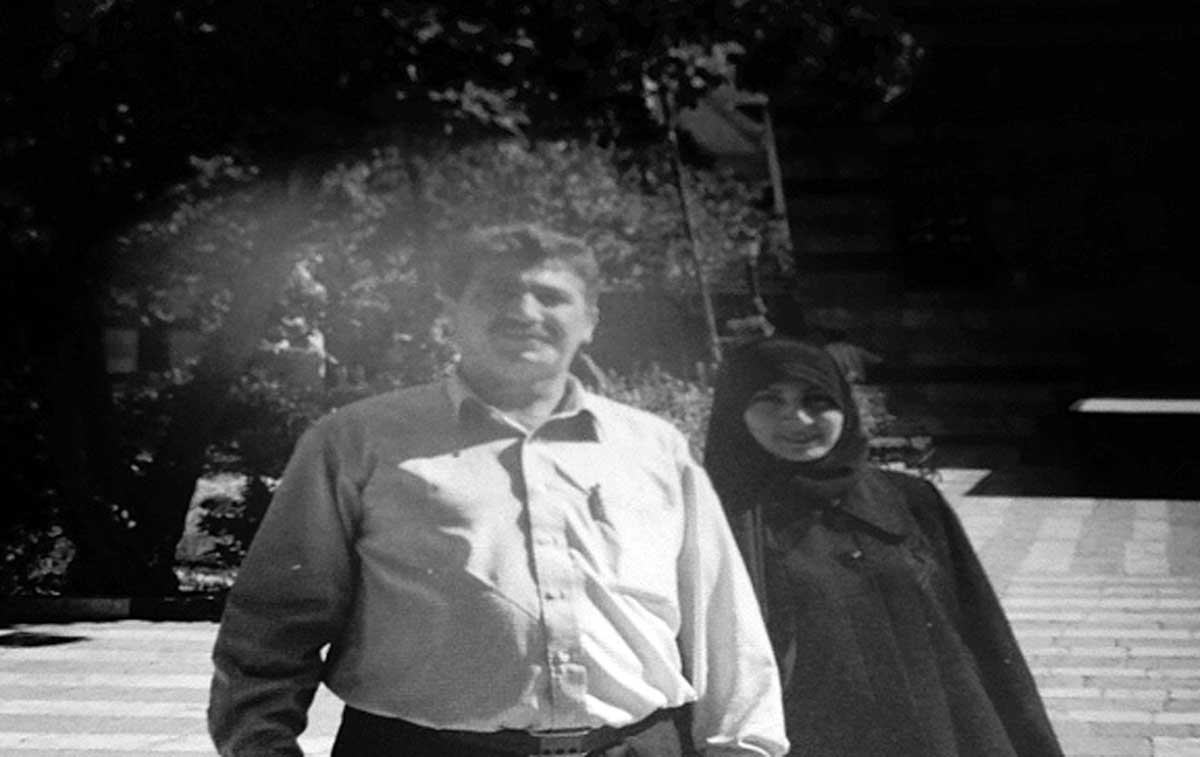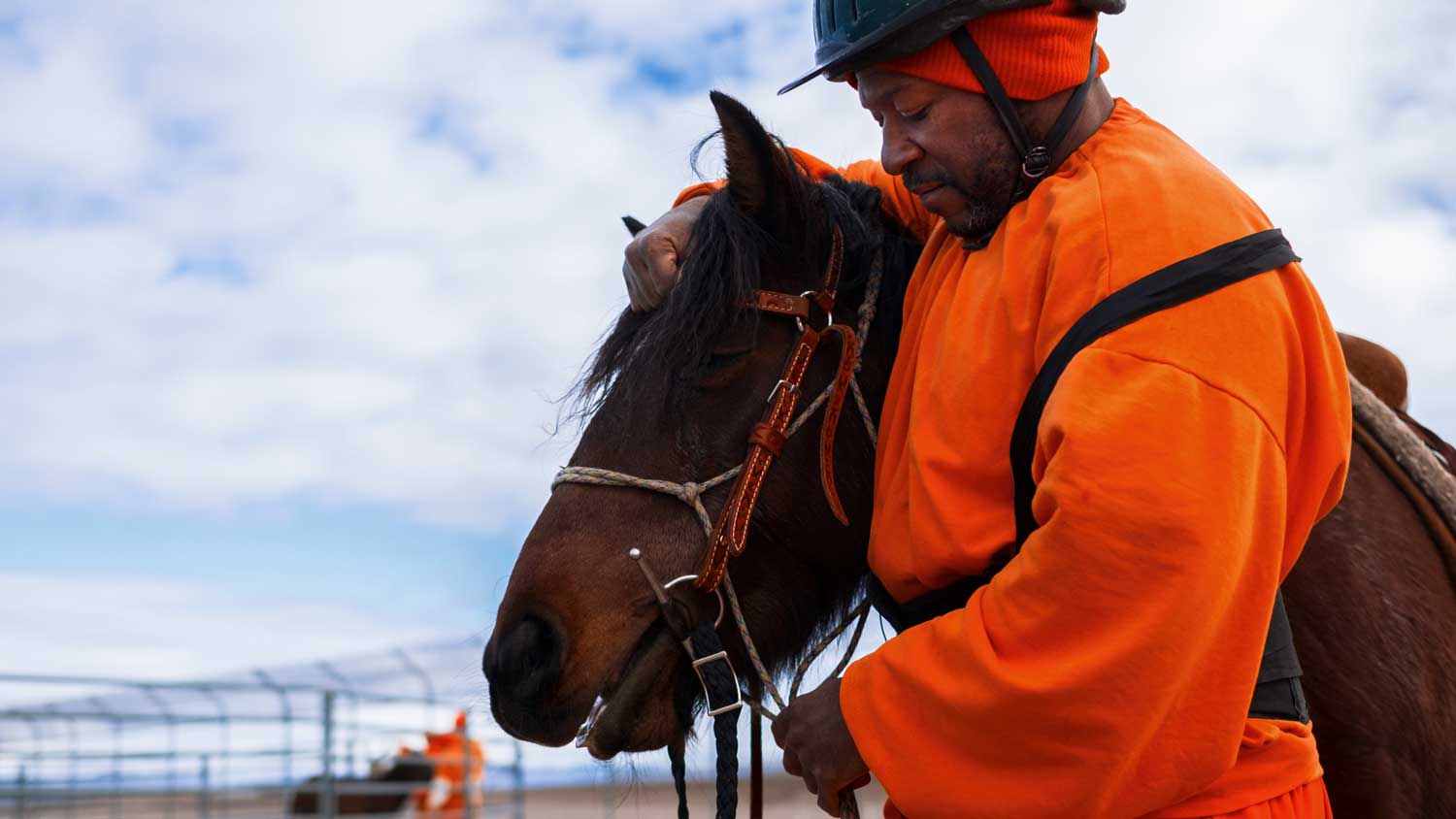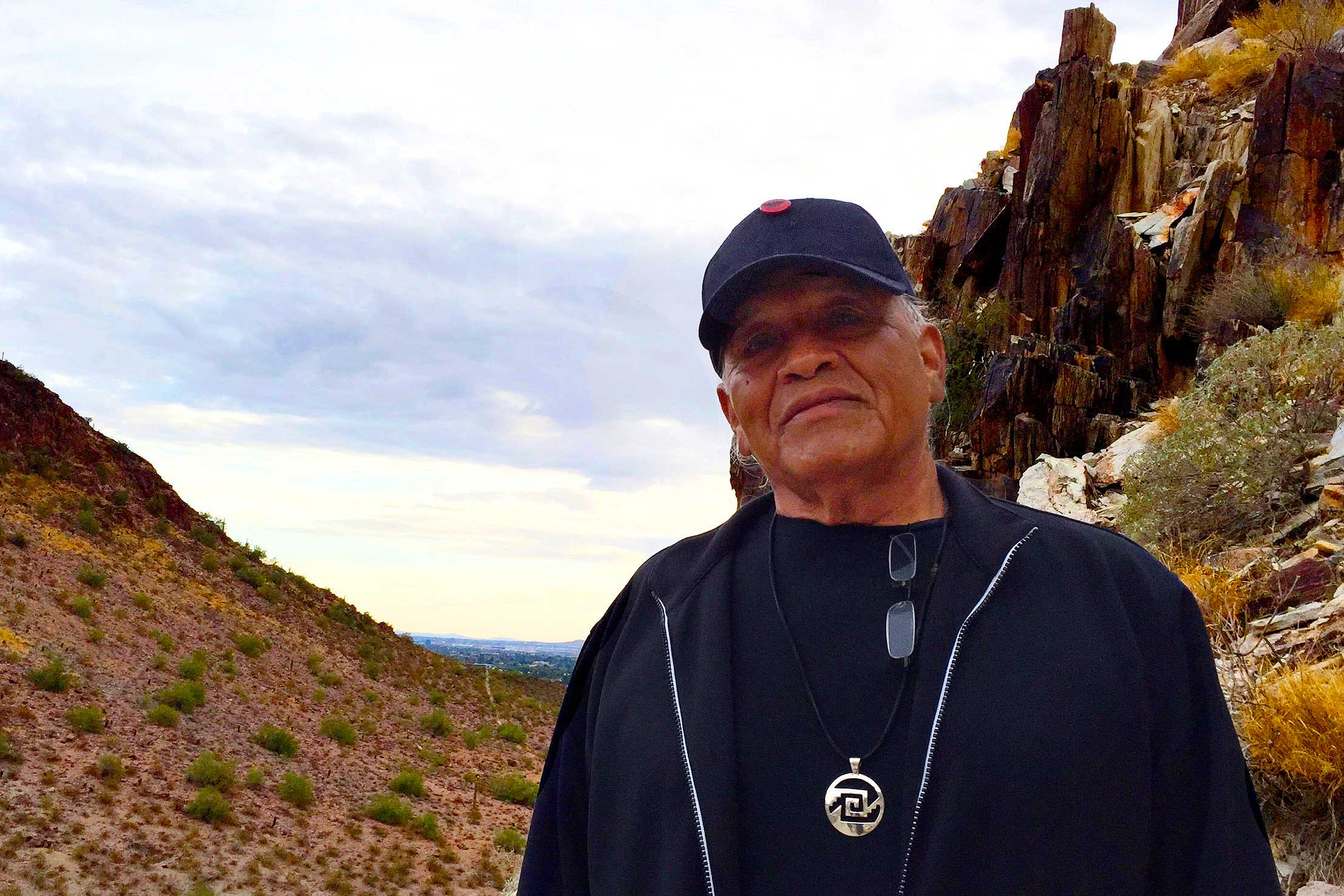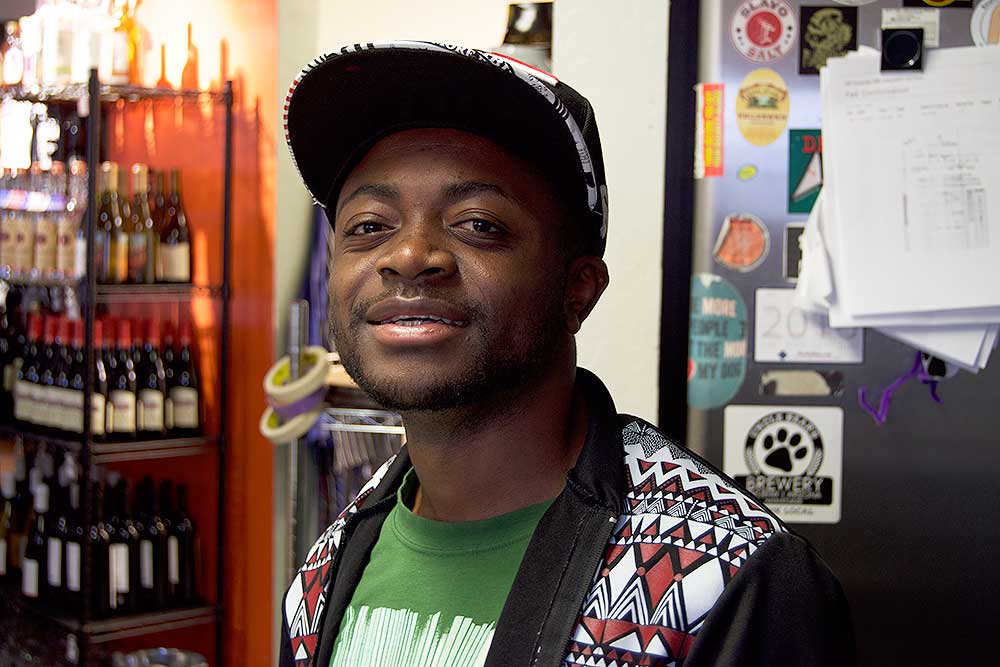by Trenae Nuri
Back in Los Angeles, Dashonte Abdul-Wakil was a common drug user, embezzler, and murderer. In Florence, Arizona, he’s a caretaker, helping wild horses find a home.
“I really enjoy working with horses,” says Abdul-Wakil. “I’ve learned and I feel I have a knack for it. I’m pretty good at it.”
It’s a grey day and muddy rainwater pools around the horse pens mixing with green and tan stalks of alfalfa and dung. Abdul-Wakil wears a brown cowboy hat and a hunter orange jacket and pants, both stamped with the letters “ADC” – Arizona Department of Corrections.
“I really couldn’t consider myself a cowboy,” says Abdul-Wakil. “I barely know how to make a fire.”
Abdul-Wakil has served 17 years in prison for second-degree murder. In November of this year, he will be released.
“My long term goal is pretty much to find some place that I can work with horses.
“I really couldn’t consider myself a cowboy, I barely know how to make a fire.”
When the Bureau of Land Management catches wild horses in Nevada, Wyoming, California or Colorado, they face 120 days of training before being adopted. Many end up in the hands of the Arizona Department of Corrections. Specifically, the Wild Horse Inmate Program (WHIP) where inmates work with experienced horse trainers to domesticate wild horses. The program has existed since April 2012 and WHIP Supervisor Randy Helm says a lot of the horses that get trained find homes with the U.S. Border Patrol.
“The main problem is overpopulation,” Helm explains. “Right now, the range will support around 27,000 across the whole Rocky Mountains. This folding season, I’ve heard numbers anywhere from 50-60,000 in the wild, and there’s going to be 20 percent more next year.”
Helm says the growing population leads to overgrazing and that can create deadly consequences for horse. WHIP ensures that horse populations remain healthy and viable.
“I’ll tell the guys, ‘if you don’t learn from these horses while you’re in here, you’re missing the biggest opportunity’,” Helm says. “These horses have to learn how to function in a culture that is opposed to the way they’ve been functioning.”
After a year in the program, Abdul-Wakil says he has worked with 12 horses: five were adopted, two were sent back and the rest are currently training. When he gets released at the end of the year, he says he hopes to find a place that will allow him to continue working with wild horses.
“It’s just like a drug when you find that you’re good at something you want to do,” says Abdul-Wakil. “It’s legal and you won’t get in trouble and they’ll pay you to do it? It’s rewarding.”
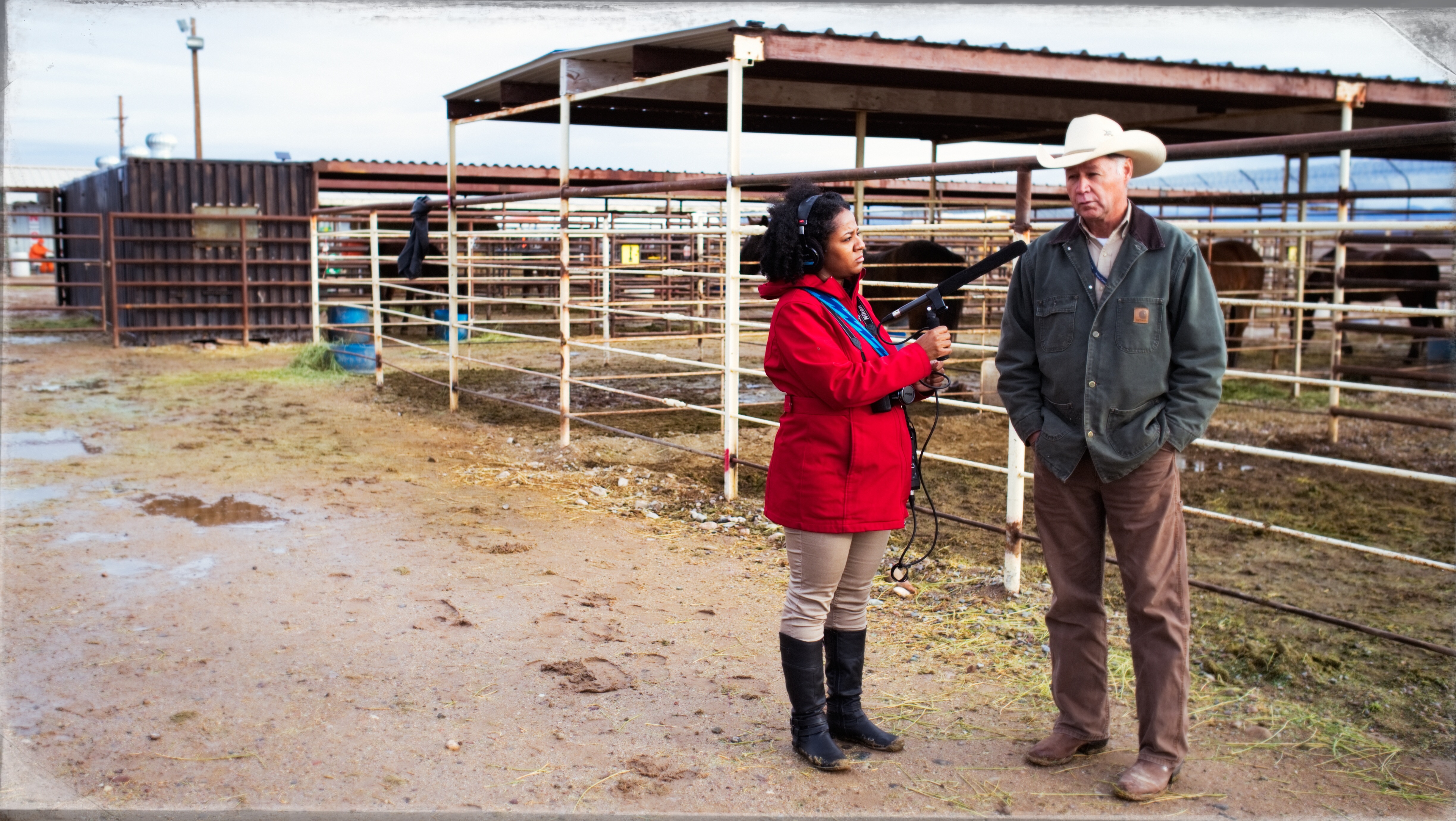
Trenae interviews Randy Helm, Supervisor of the Wild Horse Inmate Program.
“I’ll tell the guys, ‘if you don’t learn from these horses while you’re in here, you’re missing the biggest opportunity’.”

Trenae Nuri
Trenae V. Nuri is a multimedia journalist. Since 2010, Trenae has written articles and produced news packages on the lives of underrepresented communities and issues. Her maturation as a journalist and advocate for community journalism has been cultivated through her work at several media outlets in the Philadelphia region. She is a certified investigative reporter, certified producer at Philadelphia Public Access Media, and first place recipient of the 2013 Youth Writer Section Merit Award from the National Newspaper Publishers Association. Currently, she’s a producer/reporter and pursuing a master’s degree with a concentration in journalism and public communication at Drexel University.

